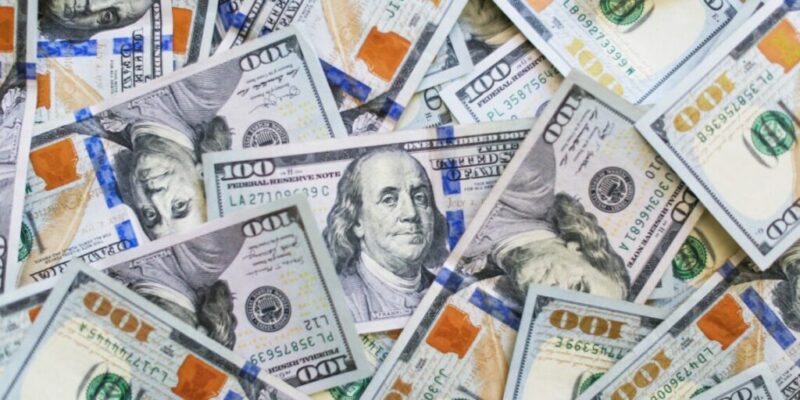Business
Dollar Crashes Again as Naira Hits New Rate

The recent rebound of the local currency is being attributed to a confluence of factors, including increased demand for the naira, a reduction in speculative trading activities, and an uptick in foreign reserves, which currently stand at $43.05 billion.
Analysts assert that the foreign exchange reforms implemented by the Central Bank of Nigeria under the leadership of Godwin Emefiele are contributing to the stabilization of exchange rates and enhancing the overall health of the economy. Click link to continue reading.


The naira sustained its gains yesterday, closing at N1,480/$1 at the official Nigerian Foreign Exchange Market.
According to data from the CBN, the naira traded at N1,480/$ continuing the positive trajectory that began in early September when it opened at N1,526.09/$.
The parallel market mirrored the trend, with the naira strengthening to between N1,490/$ and N1,495/$ in the course of the week.
The local currency rebound is being driven by a combination of stronger demand for the naira, reduced speculative trading, and rising foreign reserves now at $43.05 billion.
CBN Governor, Olayemi Cardoso, announced that gross external reserves remained robust at $43.05 billion on September 11, 2025, compared with $40.51 billion at end-July 2025 with an import cover of 8.28 months.
“Similarly, the second quarter 2025 current account balance recorded a significant surplus of $5.28 billion compared with $2.85 billion in first quarter of 2025,” Cardoso stated during the 302nd monetary policy committee meeting held this week in Abuja.
Analysts insist that the forex reforms instituted by the Cardoso-led CBN are stabilising the exchange rates and improving overall health of the economy.
The reforms were instituted to entrench transparency, accountability and improve dollar access in the foreign exchange market.
Analysts at Commercio Partners attributed the rally to a combination of stronger demand for the naira, reduced speculative trading, and improved foreign reserves.
Head of Research at Commercio Partners, Ifeanyi Ubah, expressed optimism that the positive sentiment would be sustained in the near term, supported by increasing external buffers.
“Nigeria’s rising external reserves are reflecting a healthier external position for the country.
“With reserves strengthening, speculative activity subsiding and oil earnings supporting inflows, many market watchers believe the naira’s current rally has a stronger foundation compared to previous cycles of volatility,” he said.
However, other experts caution that sustaining this momentum will depend on the government’s ability to maintain macroeconomic discipline, boost crude oil production, and diversify export earnings.
President, Association of Bureaux De Change Operators of Nigeria (ABCON), Aminu Gwadabe, said the policy shifts showed the level of creativity, policy and hard work Cardoso puts in ensuring that more forex flows into the economy and remain accessible to businesses.











